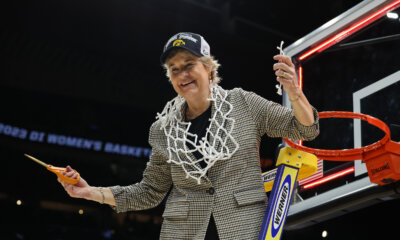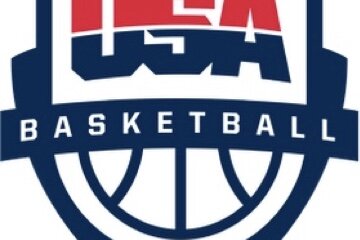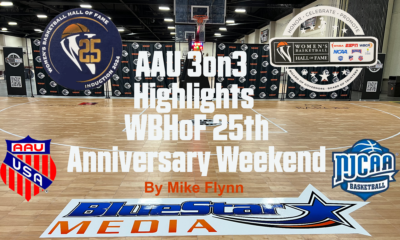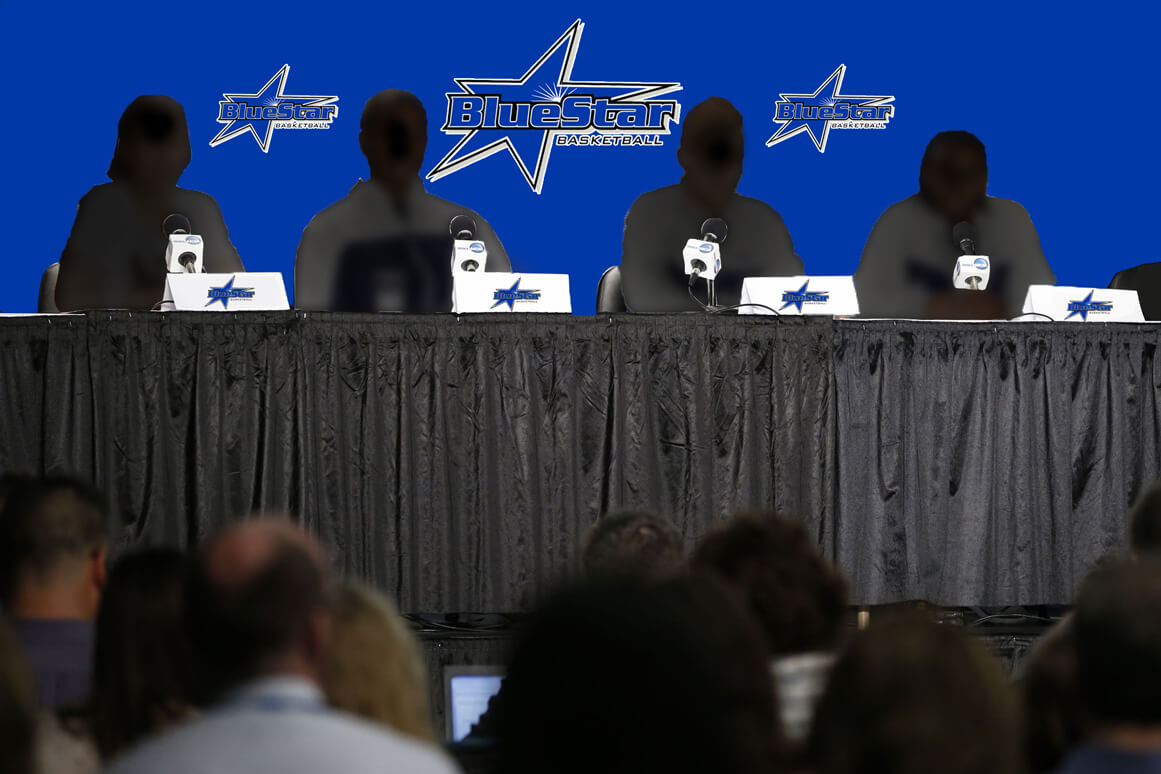On the agenda of the Women’s Basketball Coaches Association convention at the Women’s Final Four later this week is a workshop in the “Learning Lab” category entitled “So You Want to Be a Head Coach Someday? Let Us Tell You About It.”
The featured speakers are Cori Close of UCLA, Mike Neighbors of Washington and Tennessee assistant Jolette Law, formerly the Illinois head coach.
They’ve long cultivated the vineyards as they worked their way to the top, patiently paying their dues, developing relationships and taking advantage of opportunities.
All three undoubtedly will dispense time-honored wisdom and sound advice for those aspiring to join them.
But a high-profile coaching hire at school in a power conference figures to be all the buzz in Nashville.
ESPN college basketball analyst Jimmy Dykes was introduced Sunday to replace Tom Collen at Arkansas. It’s a surprise hiring that probably shouldn’t be, given some others like it, and it represents the polar opposite of what WBCA attendees may hear.
Indeed, the lesson served up by this particular hire is that even a plum job in women’s college basketball — leading a program that has been to a Final Four — doesn’t necessarily have to be filled by someone with any background in the sport. 
Dykes is an amiable former player and assistant under Eddie Sutton, and he got plenty of well wishes from ESPN colleagues and friends in the sports media and on the men’s side of the ledger.
This is understandable.
But I wonder what the reaction might have been had Arkansas athletics director Jeff Long tapped him instead to succeed Mike Anderson.
The fact that Dykes hasn’t coached anyone, anywhere, since the 1990-91 season would be raised over and over. It would be hammered to death by pundits and even some of the same people who were happy to call the Hogs with him on Sunday.
In a revenue-producing sport facing more pressures than ever to win and make money (and now, with two conference rivals in the men’s Final Four), the idea of Dykes heading up the Razorbacks’ men’s program, even with his infectious enthusiasm, would be met with skepticism.
It might be hard, in fact, to take such a hire seriously.
At his press conference Sunday, Dykes was eloquent, emotional and genuine in his desire to revive Arkansas women’s basketball. The Razorbacks went to the NCAAs only once in seven years under Collen, and attendance declined. They also struggled to keep elite college prospects at home.
Dykes had a clever comeback to those who questioned his lack of experience in the women’s game, beyond the handful of NCAA tournament games he’s called for ESPN.
“There’s nothing I can do about that,” he said. “But if you play me, then the pressure’s on you, isn’t it?”
He also raised a fair point in referencing Fred Hoiberg, who had no coaching background to his name when he returned to lead the Iowa State men’s program.
But this isn’t about Jimmy Dykes, and it’s not about his gender. I’ve long defended men in the sport against those who think that the career interests of female adults should trump those of female players.
A Twitter follower challenged me with the names of Doug Bruno and Jeff Judkins. There are others like them, who have successfully made the switch from the men’s game. More recently, Mike Carey of West Virginia was a successful Division II men’s coach. But they’ve been actively coaching for years, and they’ve never been in the elevated place that Dykes occupies now.
One notable exception is Paul Westhead, a curious (and expensive) hire at Oregon five years ago, and who is now being replaced.
In the WNBA, Bill Laimbeer, Michael Cooper and Mike Thibault had never coached women before, but the pro game is a very different animal from the college game and mastering the recruiting scene that is its lifeblood. Cooper found that out at USC and recently was hired to coach the Atlanta Dream (Westhead, like Cooper, is a WNBA championship coach).
To his credit, Dykes is retaining assistant coaches Amber Shirey and Tari Cummings as he gets started. He’ll also inherit a young roster that includes Jessica Jackson, one of the top freshman post players in the SEC and a star in-state recruit a year ago.
But this is sore subject with some in the sport, and in women’s sports: That men can just drop in without knowing the landscape and the people they’ll be working with, and competing against.
Dykes has lived in Fayetteville since high school, and reportedly turned down offers to coach elsewhere because he wanted to remain close to home.
The story coming out of Northwest Arkansas is that Dykes offered himself up as a candidate to Long at the SEC men’s tournament, then wowed a small search committee above all the others.
What do you think might happen if an established women’s coach — and particularly a woman — tried something like that? Say the Indiana men’s job comes open at some point (and it’s not a good scene in Bloomington right now). What would AD Fred Glass do if Tara VanDerveer pitched herself as a candidate, a proud graduate, a former player? A mean tickler of the ivories as well as a stout teacher of the triangle offense, what if she played a snappy version of “Indiana, My Indiana” on the piano during her interview?
This is a Hall of Fame coach, mind you. The Arkansas release mentioned that Dykes has called nearly 1,000 games on TV and observed more than 3,000 practices. VanDerveer has coached more games and practices than that. When she temporarily stepped away from her duties at Stanford, she took another coaching job, leading the 1996 U.S. Olympic team to a gold medal.
What if she said something like what Dykes said on Sunday?
“No one can sell the University of Arkansas better than Jimmy Dykes. It was about following my heart and doing something for my alma mater. This job is perfect, and this timing is perfect.”
The other candidates obviously weren’t identified, but they most likely were veterans of the women’s game. Were they not dynamic enough? Did they not interview well? Did they not stand a chance against a well-spoken television personality brimming with confidence and touting his loyalty to Hog Nation?
I would imagine they, and others in the sport, are wondering what they have to do to get a job at a place like Arkansas, with its top-notch facilities and membership in the SEC, which had eight NCAA women’s teams, five of whom reached the Sweet 16.
It’s not Long’s job to do what’s best for the larger interests of women’s basketball any more than it is football. His hires there — Bobby Petrino and Bret Bielema — have created soap opera dramatics. Anderson, who got a seven-year deal when Long fired John Pelphrey, has the fan base grousing after three unsuccessful seasons.
I wish Dykes the best — he’ll need it, given how loaded the SEC is going to be in the coming years. But to try to get your coaching chops back after so long, and in an area of the game that’s rather unfamiliar, well, I’ll let WBCA CEO Beth Bass have the last say, at least for now. It’s a measured comment, at least after the first paragraph, but it also raises an unpleasantly familiar storyline that far too many coaches in the sport would rather not think about:
“Arkansas’s decision to hire someone who has not coached basketball in 23 years is disappointing to the multitude of more-than-qualified coaches who are members of our association.
“If the Arkansas administration believes Jimmy Dykes, because of his celebrity, his ties to the university, and to the Fayetteville community, is the best person to reinvigorate support for and fan interest in Razorback women’s basketball, then we will not second guess them from afar.
“I welcome Jimmy to the women’s basketball community and look forward to working with him to grow our game. And I certainly hope to see him this weekend at the WBCA National Convention in Nashville.”
Wendy Parker is a sportswriter and web editor who has covered women's basketball since the early 1990s. She is a correspondent for Basketball Times and formerly covered women's and college sports, soccer and the Olympics at The Atlanta Journal-Constitution. She is the author of "Beyond Title IX: The Cultural Laments of Women's Sports," available on Amazon, and the creator of Sports Biblio, a blog about sports books and history.

Latest Articles
-


Christopher Lawlor
/ 20 mins agoBREAKING: Lisa Bluder steps down as Iowa women’s head coach after leading Hawkeyes to back-to-back Final Fours; Jan Jensen inherits position
IOWA CITY, Iowa – In a shock to some, Iowa women’s head coach Lisa...
-


Christopher Lawlor
/ 4 days agoTwenty-Six Athletes Expected to Participate in USA Basketball Women’s U18 National Team Trials that begin on May 15
COLORADO SPRINGS, Colo. — USA Basketball announced 26 athletes expected to participate in the...
-


Basketball
/ 7 days agoAAU 3on3 Highlights WBHoF 25th Anniversary Weekend
KNOXVILLE – The 25th anniversary weekend celebration of the Women’s Basketball Hall of Fame...
By Mike Flynn -


Christopher Lawlor
/ 1 week agoGONE PRO: Blue Star Media Elite 25 football rankings’ regulars Bishop Gorman (NV) and IMG Academy (FL) lead 2024 NFL Draft with three selections apiece
BENSALEM, Pa. – One of the greatest three day stretches annually in professional sports...



